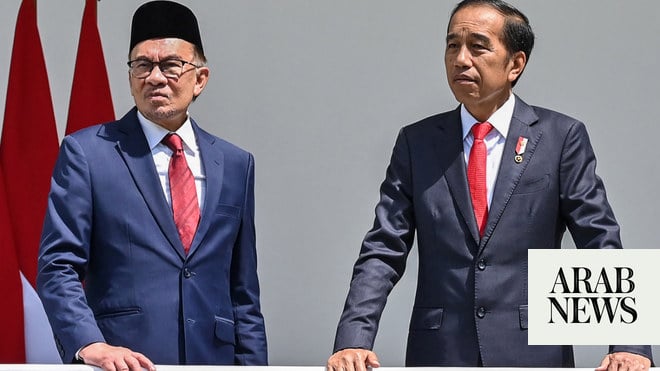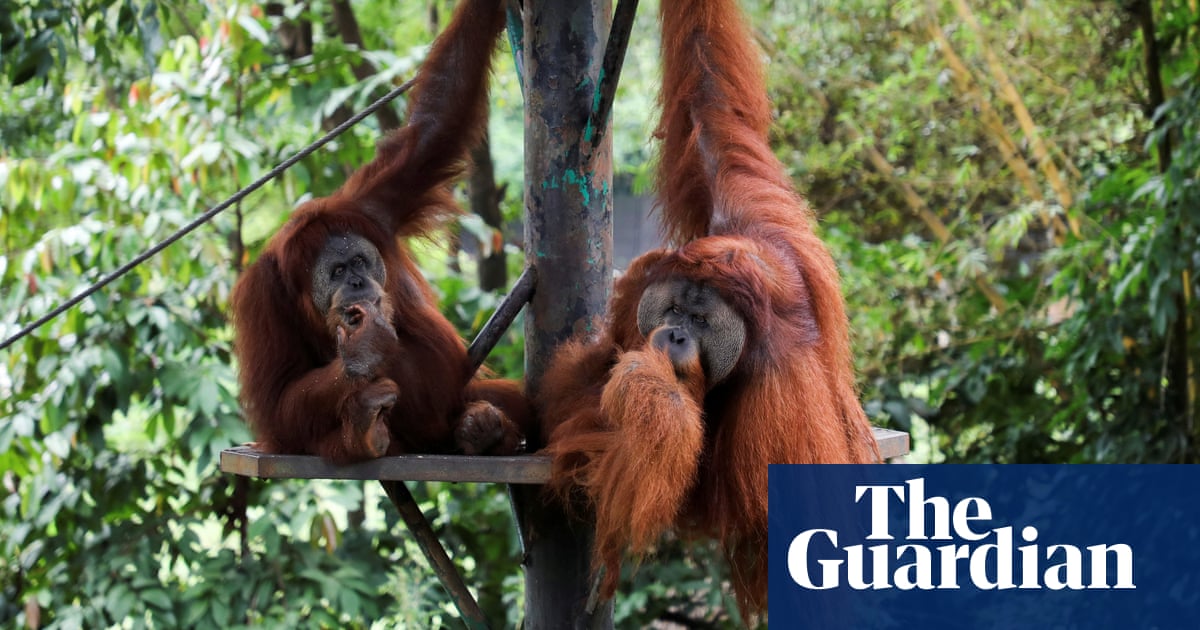
Both countries account for 85 percent of global palm oil production
PM Anwar also said Malaysia ready to invest in Indonesia’s new capital
JAKARTA: Indonesia and Malaysia, the world’s biggest producers of palm oil, have agreed to strengthen cooperation to fight “discrimination” against the commodity, President Joko Widodo said on Monday after a meeting with Prime Minister Anwar Ibrahim.
The Southeast Asian countries together account for 85 percent of global palm oil production, a sector that plays an important role in their economies and has long been associated with deforestation.
Widodo hosted Anwar at the presidential palace in Bogor, West Java. Anwar was visiting Indonesia on his first overseas trip since taking office in November.
“We have also agreed to strengthen cooperation through the Council of Palm Oil Producing Countries, CPOPC, to boost the palm oil market and fight discrimination against palm oil,” Widodo said during a joint press conference.
In recent years, concerns over the mass clearing of tropical rainforests, destruction of endangered wildlife habitats, land conflicts with indigenous communities and labor rights abuses have fueled consumer campaigns against products containing palm oil.
CPOPC said palm oil has “experienced discrimination” in the EU market, such as with the bloc’s strict sustainable standard requirement for the commodity.
The EU, under its renewable energy directive, plans to phase out use of palm oil-based fuels by 2030 due to the commodity’s links to deforestation, which has triggered outcries from Indonesia and Malaysia. Last month, EU lawmakers and governments reached a provisional deal that would ban the import of products that contribute to global deforestation.
The bloc’s latest move would be hardest on “small farmers,” CPOPC said.
“The EU has just agreed to implement a deforestation-free certificate requirement for palm oil and six other products…Fulfilling that requirement will only add burden to the small farmers,” CPOPC Secretary-General, Rizal Affandi Lukman, told Arab News.
During the leaders’ meeting on Monday, Indonesia and Malaysia also discussed issues of border demarcation, the situation in military-ruled Myanmar, as well as the employment and protection of Indonesian migrant workers in Malaysia, which has been plagued with cases of abuse and human trafficking.
Private sectors from the two countries had earlier signed several agreements worth over $360 million, according to a statement issued by Malaysia’s Ministry of Foreign Affairs.
Anwar said Malaysia was ready to invest in the development of Indonesia’s new capital, Nusantara, on the island of Borneo, which both nations share. Anwar said Nusantara’s proximity to Malaysia’s Sabah and Sarawak states will benefit regional development.
“The development of the capital will bring greater benefits to the wider region, including Sabah and Sarawak,” he said.












